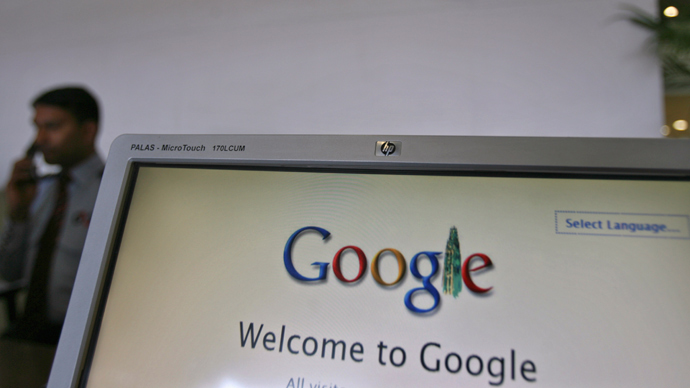Govts’ intense interest in web users’ data doubles in 3 years – Google report

The number of government requests for Google user data has increased significantly with the United States topping the list, followed by India, Germany and France, according to a transparency report issued by the American tech giant.
The eighth Google Transparency report revealed earlier this week shows figures have more than doubled in the past three years. Since the search giant began sharing the statistics in 2010, requests have rocketed from 12,539 in the last half of 2009 to 25,879 in the first six months of 2013.
“This comes as usage of our services continues to grow, but also as more governments have made requests than ever before. And these numbers only include the requests we’re allowed to publish,” the company said in a blog post.
The US continues to lead the list, with 10,918 requests concerning some 21,863 American users and accounts between January and June 2013. Google said it handed over data for 83 percent of those requests, which marked the highest rate in its query-comply rate.
India, the second on the list, is lagging behind the leader with 2,691 requests about 4,161 users and accounts, the biannual reports shows. However, the country’s population is actually three times as large as the US's.
Germany comes third, with Google receiving 2,311 requests from the European state; it complied with 48 percent of them. France is rounding out in the top four snoopers, having asked the tech giant for users’ data 2,011 times and having its curiosity satisfied in 49 percent of cases.
Russia is ranked 21st and made 103 requests about 103 accounts and users. Google complied with none of those, according to the report.

Google says that over the past three years it has kept adding more detail to their reports. They now include “additional information about the legal process for US criminal requests: breaking out emergency disclosures, wiretap orders, pen register orders and other court orders”.
The American giant slammed US authorities for preventing it from sharing full information on the requests it receives from the government with the public .
“The US Department of Justice contends that US law does not allow us to share information about some national security requests that we might receive. Specifically, the US government argues that we cannot share information about the requests we receive (if any) under the Foreign Intelligence Surveillance Act,” Google says in its official blog.
Data on requests made under the FISA is missing from the report – that graph provided in the blog post is completely blacked out. FISA requests refer to court orders that can require American companies to hand over personal information in national security investigations.
Google also receives the so-called National Security Letters – requests authorized by the FBI which can require companies to deliver subscribers’ name, address, length of service, and local and long distance toll billing records. That data – also used for national security investigations - does not require a court order. In its report, Google has so far shared only general information regarding these letters, basically saying that the number of them was within the range of between 0 and 999.
The company vowed that it will continue to defend users’ data “from overly broad government requests, and to push for greater transparency around the world”.
Google’s latest report covers mainly the period before the global spying scandal, which unravelled after the former National Security Agency’s contractor, Edward Snowden, disclosed information about PRISM - the secret American surveillance program. The revelation was followed by a string of spy scandals around the globe, with the whistleblower having leaked up to 200,000 classified American documents. Perhaps these revelations will give governments pause for thought and make them think about curbing their appetites for snooping.














